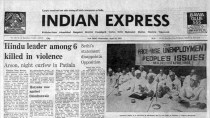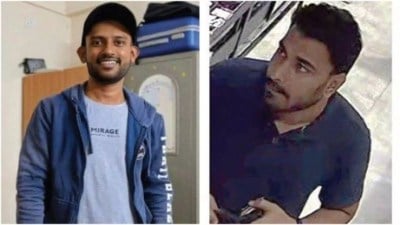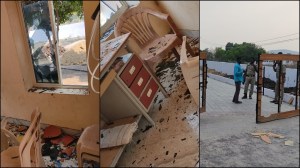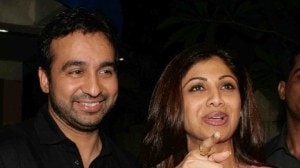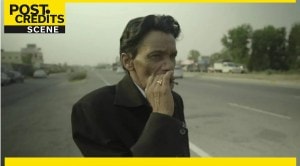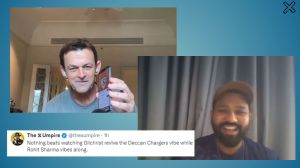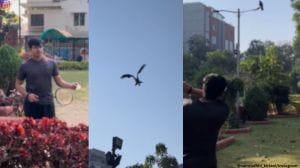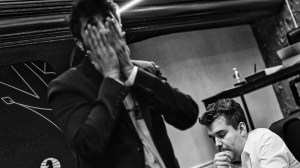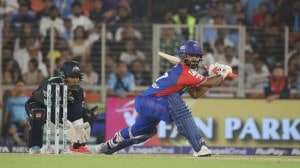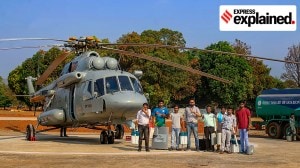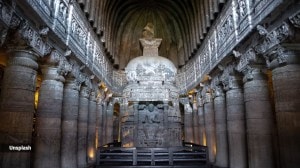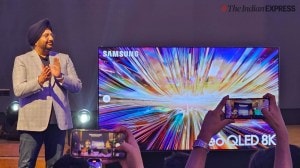- India
- International
Rear View: Vajpayee makes a big bang
But the euphoria after Pokhran II lasted only a short while.
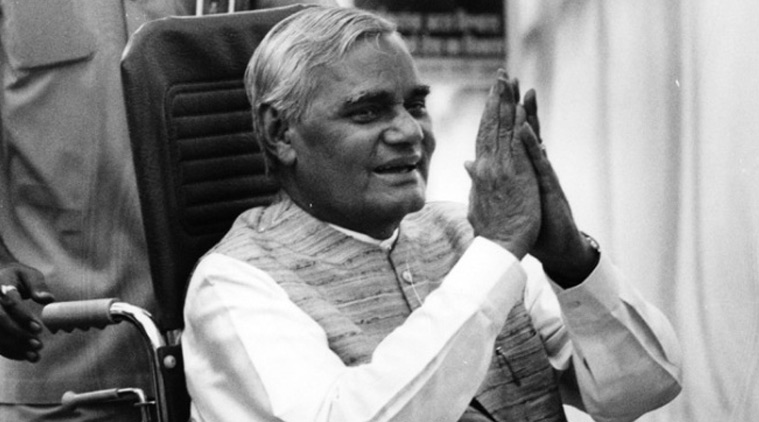 The fourth and final reason why Pokhran II should not have surprised anyone is that the BJP’s election manifesto had made it clear that for the sake of “India’s security”.
The fourth and final reason why Pokhran II should not have surprised anyone is that the BJP’s election manifesto had made it clear that for the sake of “India’s security”.
On October 16, 1964, when China tested its first nuclear bomb at Lop Nor, Premier Zhou Enlai said to Marshal Ni Rongchen: “Unless you make the big bang, they don’t listen to you.” Obviously, Atal Bihari Vajpayee and his closest confidants also thought so. For, less than two months after his coming to power, he conducted the Shakti series of nuclear tests at Pokhran and declared India to be a nuclear weapon state. Suddenly, the feeling of vague disappointment was blown sky-high. What replaced it was nothing short of euphoria.
Even Congress president Sonia Gandhi’s reaction was fully to endorse the prime minister’s decision. Later, however, some of her naysayer followers persuaded her to soften her support. People at large were dancing with joy.
To be sure, there were some on the Indian scene who were fundamentally opposed to going nuclear. A few of them made themselves ridiculous while denouncing the national mood. Some even questioned the efficacy of the five explosions designed to test weapons with different yields — from tactical to thermonuclear — and for different delivery systems. Foreigners, who condemned Pokhran II as strongly as 90 per cent of Indians had applauded it, knew better. Otherwise, the United States, Britain, Japan and some others wouldn’t have imposed sanctions on this country.
Since Pakistan also tested its nuclear weapons at the Chagai Hills in Balochistan a fortnight later, most foreigners and some Indians spread the canard that India had “weakened” rather than “strengthened” its strategic position in the region. Obviously, these innocent souls did not know, or pretended not to know, that in the latter half of 1988, Rajiv Gandhi, as prime minister, had authorised P.K. Iyengar, chairman of the Atomic Energy Commission, and V.S. Arunachalam, chief of the Defence Research and Development Organisation, to start producing a limited number of weapons. Until then, thanks to Jawaharlal Nehru’s grand vision, India’s nuclear policy was to abhor nuclear weapons, use nuclear energy for peaceful purposes only and also go on mastering all nuclear technologies so that the nuclear option could be exercised if and when needed.
Therefore, for more reasons than one, no knowledgeable person should have been surprised when the option was exercised on May 11, 1998. First, Vajpayee knew that Rajiv Gandhi had acted only after he was absolutely certain that Pakistan possessed more than one nuclear bomb, while India had none. Second, the first Indian nuclear test (Pokhran I) had been conducted by Indira Gandhi on May 18, 1974. She had ordered it in December 1971 when, in the final stages of the Bangladesh war, the US had sent a nuclear naval task force into the Bay of Bengal.

Third, it was no longer a secret that in December 1995, the then prime minister, P.V. Narasimha Rao, had planned to conduct a test. However, the preparations at Pokhran were detected by US satellites. When President Bill Clinton rang him up, the wily PM stated, with an air of injured innocence, that what was going on at Pokhran was the “routine maintenance of an existing facility”. Meanwhile, the then US ambassador to India, Frank Wisner, had descended on the principal secretary to the PM, A.N. Verma, who told the envoy that there was no question of a nuclear test because, had one been planned, he would have certainly known about it. This was embarrassing, for it only showed that Verma wasn’t in the loop. The test was abandoned.
The fourth and final reason why Pokhran II should not have surprised anyone is that the BJP’s election manifesto had made it clear that for the sake of “India’s security”, the “nuclear option” would be exercised “if need be”. But there is little doubt that Vajpayee’s and his most influential advisor, principal secretary Brajesh Mishra’s, minds were already made up.
Another stroke of good luck about the nuclear tests was that these took place under a heavy blanket of cloud. So the
US satellites noticed nothing. Strobe Talbott, then deputy secretary of state, knew absolutely nothing about Pokhran II until a senior member of his staff came running and virtually shouted that Indians had conducted several nuclear tests. “Who told you?” he asked. “CNN,” she replied. Talbott immediately rang his equivalent
in the CIA, who was deeply depressed on “having been beaten by not only CNN but also the state department”. The plight of the Indian ambassador to the US, Naresh Chandra, was equally unenviable.
Back home, the great feeling faded astonishingly fast. In a few weeks, the excitement over the nuclear tests disappeared. Fears about the government’s survival reappeared. However, the ruling combination muddled along.
The writer is a Delhi-based political commentator
40 Years Ago
EXPRESS OPINION
More Explained
Apr 18: Latest News
- 01
- 02
- 03
- 04
- 05











